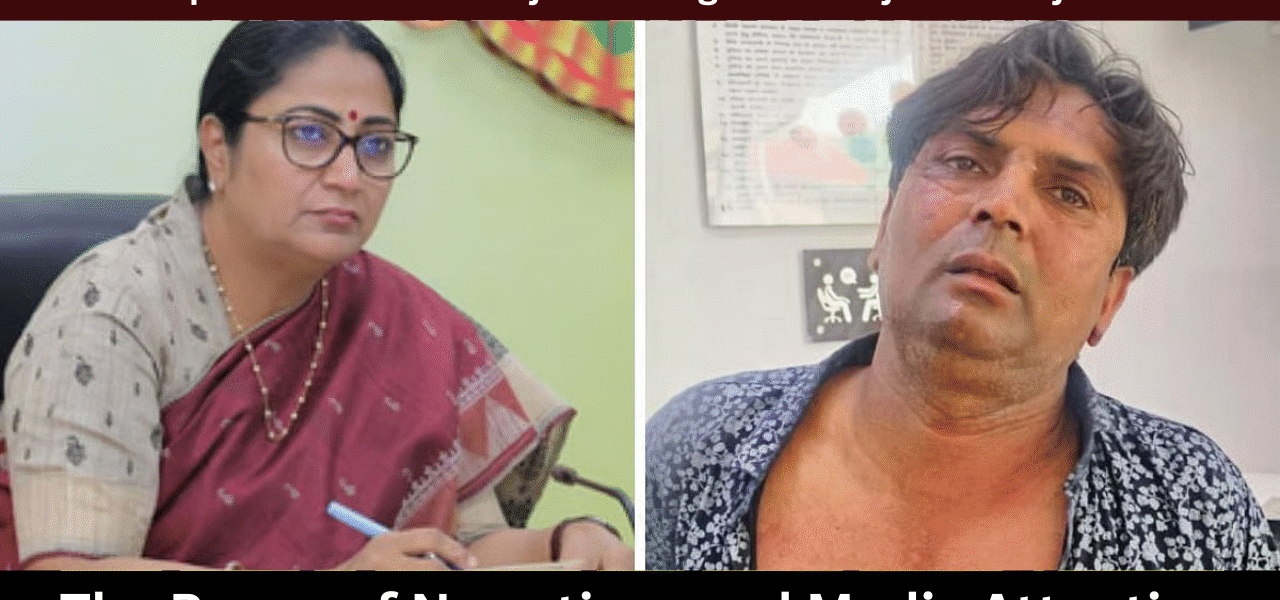📰 Rekha Gupta Attack Case: Gujarat’s Dog-Lover Rajesh Khimji Identified as Attacker, Mother Speaks Out
A dramatic twist has emerged in the case of the attack on Delhi Chief Minister Rekha Gupta. The accused has been identified as 41-year-old Rajesh Sakaraiya Khimji, a resident of the Ajidam extension area in Rajkot, Gujarat. His mother, Bhanu Ben, told media outlets that her son was not associated with any political party and described him as a dog lover and animal caretaker.
🔍 What the Family Says
Rajesh’s mother, visibly shaken, revealed:
- “My son drives a rickshaw to support the family. He looks after dogs and even cows. He is an animal lover. He has no ties with any political party. Why he attacked the Chief Minister, I don’t know.”
She further added that Rajesh had recently travelled to Ujjain and then moved on to Delhi. Just a day before the incident, she had spoken with him. According to her, Rajesh was emotionally disturbed over issues related to stray dogs.
⚡ How the Attack Happened
The shocking incident occurred at CM Rekha Gupta’s Civil Lines residence in Delhi. Rajesh reportedly arrived posing as a complainant with some papers in hand. Suddenly, he attempted to slap the Chief Minister. Quick response from security personnel thwarted the attack, and Rajesh was immediately overpowered.
Delhi Police arrested him on the spot and took him to the Civil Lines Police Station. The case is now under joint interrogation by the District Police and the Special Cell, as officials investigate whether the assault was an individual act of frustration or part of a larger conspiracy.
🌐 Who is Rajesh Khimji?
- Age: 41
- Profession: Rickshaw driver
- Community: Patidar (Sakaria Patel) from Rajkot, Gujarat
- Known for: Animal lover, particularly dogs and cows
- Background: Lived with family, no criminal record mentioned so far
His family maintains that he has no political affiliations and that his grievances revolved around stray dog-related issues.
⚖️ What Comes Next?
Investigators are probing whether Rajesh’s attack was a spontaneous outburst rooted in personal frustration or if external influences were involved. The incident has triggered sharp political reactions in Delhi, with opposition parties demanding accountability for security lapses.
For now, the case highlights the fragile intersection of public grievances, political security, and governance, placing the safety of high-profile leaders under scrutiny once again.
✍️ Author’s Analysis: The Power of Narratives and Media Attention
In today’s social media-driven landscape, almost any issue can escalate into sharp public reactions—some genuine, others deliberately engineered to shape narratives. The Rekha Gupta case demonstrates how stray dog issues, typically local and administrative, have suddenly become a focal point of national discussion.
This raises deeper questions: why stray dogs, and why now? When society at large accepts the mass killing of animals for food consumption, the selective outrage over stray dogs seems unusual. Such disproportionate attention suggests that narratives may be set with motives and objectives—possibly by vested interest groups with larger stakes in the stray dog discourse.
From this perspective, the attack on CM Rekha Gupta could be more than just a personal grievance. It may be part of a deliberate attempt to channel public attention toward an emotionally charged issue, creating ethical debates about animal rights, governance, and public safety.
If so, CM Rekha Gupta may well be a victim of a larger media race to set and control narratives, where political leaders are pulled into controversies not of their making but of strategic design.
CM Rekha Gupta
Recent Posts
- India Reaffirms Taiwan Policy Amid Chinese Claims: Strategic Clarity Prevails in Jaishankar–Wang Yi Talks
- ChatGPT Go Unleashes Affordable AI Power in India — A Revolution at ₹399/Month
Discover more from
Subscribe to get the latest posts sent to your email.











1 COMMENTS